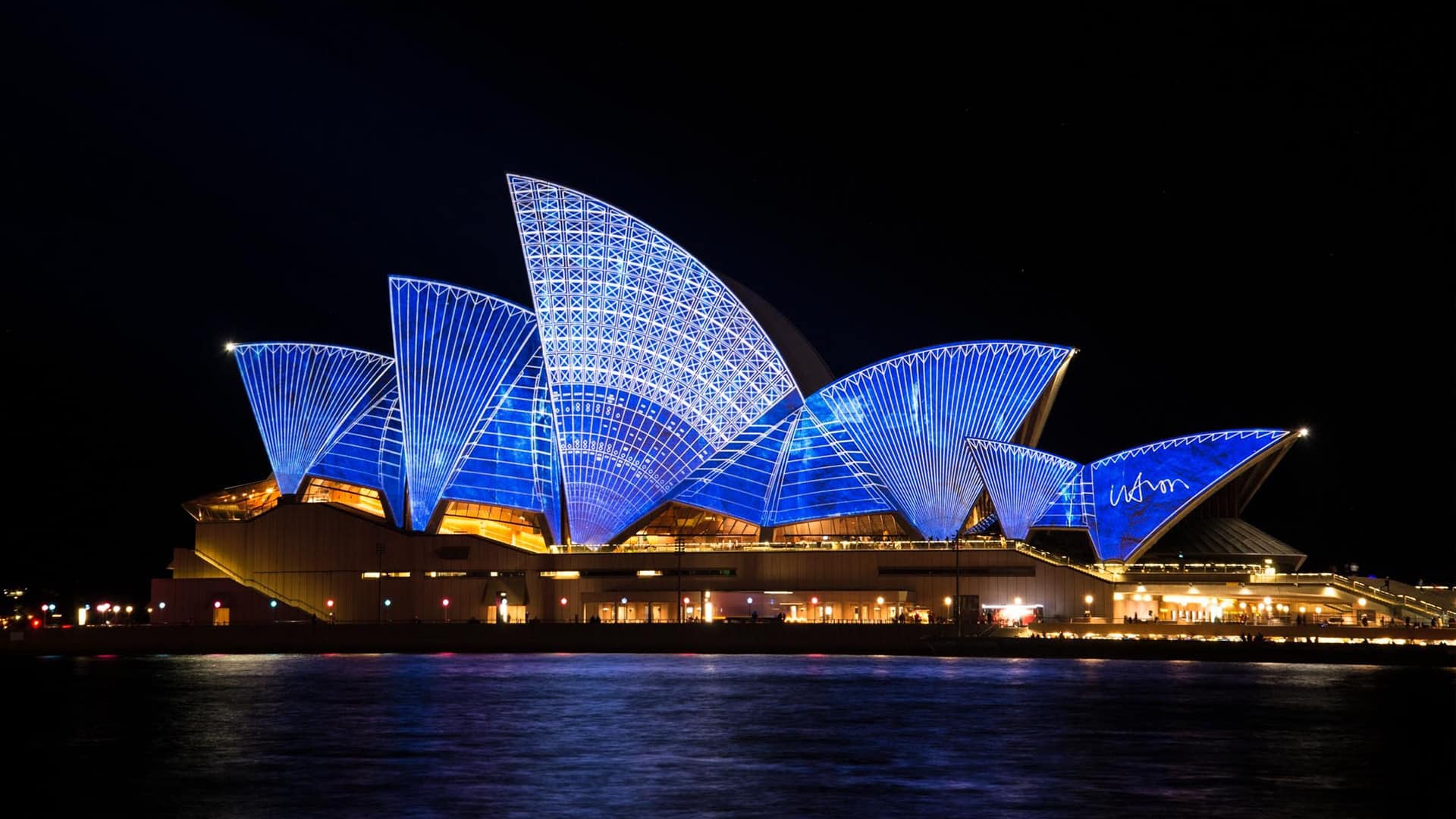- Population: 24.6 million
- Currency: Australian dollar (AUD)
- University Students: 1,313,776
- International Students: 350,472 (26%)
- English-taught Programs: 10,300
Australia is home to both public and private institutions for higher learning, most of which host international students from countries all across the globe. Australia’s unique landscapes, modern cities, and diverse population are highly attractive to many students interested in studying abroad.
Australia’s natural setting is denoted by world-famous beaches like Bondi Beach, pristine national parks Kakadu National Park, and culturally rich cities like Sydney and Melbourne. Students attend the nation’s many colleges and universities to earn undergraduate bachelor degrees or to earn master’s and PhD degrees through rigorous graduate studies.
Currently, there are roughly 1,313,776 students enrolled in Australia’s institutions for higher learning. Of these, 350,472 are international students. Recent figures show that international student enrollment is up by 12 percent, an increase that is prompting many Colleges and Universities in Australia to enhance their programs and offerings to serve this growing student population.
Australia’s international students primarily hail from (beginning with highest percentage): China, India, South Korea, Vietnam, Thailand, Malaysia, Brazil, Indonesia, Nepal, and Pakistan. Nearly 80% of Australia’s population speak English; this attracts many international students who want to immerse themselves in an English-speaking nation in order to sharpen their own language skills.
In addition, many of Australia’s Universities and Colleges offer a diverse range of coursework that appeals to a diverse array of students looking to enroll in English, technology, medicine, education, and other popular fields of study.
Universities in Australia
According to the Australian government, there are 43 universities in the country. Each state is home to at least one main university campus. In addition, there are 99 colleges that also host international students. Australia’s oldest university is the University of Sydney, which was founded in 1850. Some of the country’s major and best-respected universities include:
- Australian National University
- University of Melbourne
- University of Sydney
- University of Western Australia
- University of Queensland
- University of New South Wales
- Monash University
- University of Adelaide
- University of Wollongong
Business Schools in Australia
Many international students apply to Australian programs of study for business. Australia features may highly respected business schools that include:
- Melbourne Business School (University of Melbourne)
- Australian Graduate School of Management (University of New South Wales)
- La Trobe Business School
- Australian National University’s College of Business and Economics
- Macquarie Graduate School of Management
- RMIT Graduate School of Business and Law
Technical Schools in Australia
Many of Australia’s top universities and colleges offer renowned programs of study for engineering and technology. These, too, are especially attractive to many study-abroad-students.
- Victoria University
- Queensland University of Technology
- RMIT University
- University of Melbourne
- La Trobe University
- Federation University Australia
- Deakin University
Tuition Fees in Australia
Australia has a reputation for being an expensive country for education; however, it has much to offer academically and culturally. Tuition rates in Australia do vary widely. International students can expect to pay—on average–AU$30,840 (19,400 EUR) per year for undergraduate coursework and slightly more (AU$31,596) for graduate-level coursework. These figures do not reflect high-value programs like medicine and veterinary degrees. Many of the nation’s university’s and colleges post current tuition prices on their websites along with other associated fees.
Scholarships in Australia
Australia features scholarships and fellowships for international students. Most recipients tend to be working on advanced degrees, however. The government offers the Australia Awards to international students from developing countries; these financial awards amount to $305 million. Students from the UK are eligible to apply for Northcote Graduate Scholarships. Many Australian universities and colleges offer their own scholarships and grant programs that are open to both domestic and international students. Their websites provide information about application rules and deadlines.
Cost of Living in Australia
International students should prepare to have AU$20,290 (12,800 EUR) to live on for a year of study in Australia. Students who bring along a partner or children will need additional funds to cover cost-of-living expenses. The Australian government requires international students to have proof of cost-of-living funds. The above figure is the government standard, but many students are able to live on much less during their stay.
Internships & Company Placements in Australia
Many Australian Universities and Colleges boast internship programs for students. There are also Australian-based firms that help domestic and international students locate internships throughout the country. These internships are designed to help students gain real-world work experience or to further their professional development.
Working in Australia
In order to work in Australia, international students must possess a student visa that includes work permission. Current law does not require international students to pay extra for their work permission visa. Under this visa, international students are allowed to work up to 20 hours per week.
Applying for a Student Visa to Study in Australia
The cost of a student visa (including the work permission) is 535 AUD (330 EUR). Prospective students should review this cost as fees may change from one year to the next. Students can apply for a student visa by post, mail, or online. The process differs slightly for each. In all cases, prospective students must meet criteria that include: Genuine Temporary Entrant requirement, financial requirements, English proficiency requirement, and health and character requirements. More information regarding the student visa application process can be found at the Australian Department of Home Affairs website.
